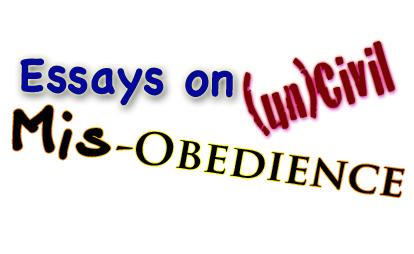

How many times a day do you hear them? More
importantly, just what do ‘bias’ and ‘prejudice’ really
mean to you? Do they mean the same things they meant
50 years ago? 100 years? 200??
Back out on my familiar limb, I’m going to throw
caution to the wind and say ‘no’. I can’t say that the
usage of these words was even the same when I was a
schoolkid. I’m not concerned with using a dictionary for
reference here, because,well, a dictionary just lists all
the definitions. It doesn’t bother to tell you which one
came first.The different meanings are cataloged in order
of common usage, not age. I believe this means the most
general definition is most likely the first. Therefore, a
major individual situation is necessary to add a particular
definition to a word.
Now, because of the idiocy of slavery and racism
towards blacks ,the definition of the word ‘prejudice’
actually includes skin color as a factor, like the word
‘politics’ includes government as the major factor (and
we all know how well that turned out!).
Regardless of what we may do to the recorded
meanings of words, we are still acting out the basic usage
in most cases. Nowhere in our vocabulary do we make
this more obvious than with the evil twin cousins of the
English language-‘bias’ and ‘prejudice’.
‘Bias’, I feel, is a general term to indicate a
preference for a person or a thing based on the belief
that the preferred one is better. Like the old mom’s line
‘he’s a good boy, but then again, I’m biased.’ You can
have a bias for a sports team, a brandname- anything or
anybody. Nowadays though, you can also have a bias
against something. This is, I feel, an overly generous
addition to the usage of the word.
Why would a word be forced to work overtime? Who
tells a noun that it’s gotta put in double shifts all
week? (for that matter, who pays unemployment for out
of work adverbs??) Just like in real life, it’s because
someone got a transfer.
‘Prejudice’ was the word that really stood for the
negative preference. Prejudice is about not liking
something. It’s about wanting that thing to lose or go
away. We are prejudiced towards the visiting team
because we want our team to win. Well, we used to be.
All that has changed. Now, if you are biased, you are
against the other team ( not for your own) and if you are
prejudiced you are a racist. Forget about the sports
analogy, buddy, this word’s out of the game. Our nation’s
own past misdeeds have reassigned this word to new
duties for the forseeable future. The civil strife that
never should have been had no choice but to leave it’s
marks on society, and this is but one of them.
The reflection of a great mistake, chiseled into the
meaning of 9 letters.
In spite of all this, we still act by the old definitions
every day. Some of us trumpet our biases and wail our
prejudices. Some of us just quietly steer around our
prejudices, mapping the course to our biases, where we
find peace, or at least, a good lunch deal. We are biased
towards evrything from our kid’s ball team to the gang
that works at our regular hangouts. We are biased for
the sports that we had fun playing when we were kids,
and we are prejudiced against the ones we sucked at.
We carry this love/hate relationship with us throughout
our lives, in our food, our music, theatre, movies, our
clothes and, most unfortunately, our associations with
people.
We clean each others clocks everyday in our brains,
sizing each other up and filling out our tedious little
sub-conscious lists of who to like and who to dislike- and
why! We come up with all kinds of reasons to include or
exclude people from our lives. As with all things, we’re
just organizing our individual worlds to suit each unique
perspective and identity. (Gosh, that’s so, like, you
know?)
We call it freedom of choice.
For the most part, it works darn well. But, the thing
about it is, freedom of choice only applies to the biases in
our lives. It’s like candy, rewarding us with a sweet,
head-spinning rush of joy. We choose our biases the way
we choose our candy. We grab what we like best, and we
grin about having it. When we’re choosing our freedoms,
life is our candystore.
We don’t, however, choose our prejudices. They are
the result of our exposure to the biases of others that
conflict with ours. They represent the things that make
us uncomfortable beyond our control. Everybody has
them, whether they admit it or not. The thing is,
prejudices run the gamut from petty idiocy to global
endangerment.
In addition to the current ‘skin color’ definition, we
harbour many other wonderful, ‘enriching’ prejudices.
We have them towards the people who dress differently,
and those people have them towards us because we’re
looking at them.We're prejudiced against the store that
treated us badly, the TV show that we thought wasn’t
funny, that band so-and-so likes that sounds like
trash, or the cranky old fart who says the music we’re
listening to sounds like trash. Our prejudices bely both
the petty annoyances and the major upheavals in our
lives. It’s not uncommon for all the close relatives of,
say, an alcoholic, to develop a prejudice towards
drinking- sometimes against anyone who drinks at all.
You could substitue ANY problem a person can have, and
the equation will hold true- some kind of prejudice will
be produced. It is part of the way our minds cope with
unwanted influences.
The really big problem is the tendency to ignore or
dismiss the subjects of our prejudices out of hand
because of our particular discomfort. We do it all the
time. We assume that, because ‘they’ engage in
behavior that we don’t like, that everything else ‘they’
do is invalid as well. We stop listening to the words and
start judging the content by our loathing for the
individual. Had a drug problem? Can’t know what you’re
talking about. Must be totally zoned, man. Were you a
gambler? Better watch my wallet! You get the idea.
Everyone from immigrants to senor citizens feels it
everyday. Face it , if no one is prejudiced against you,
you are probably dead, or living on the new side of
Antarctica.
So what can we do? We could be more patient. We
can try to be more educated so that we will recognize
smart things when we hear them, instead of dismissing
them because of the body-piercings on the speaker (or
the lack of same).
Mostly, if we learn, we win. If we don’t, we all lose.